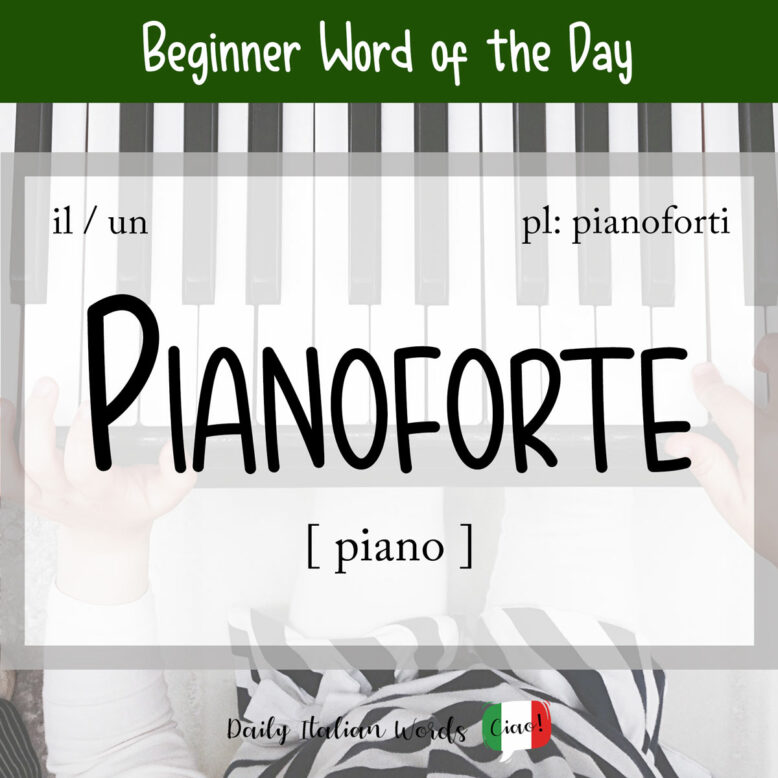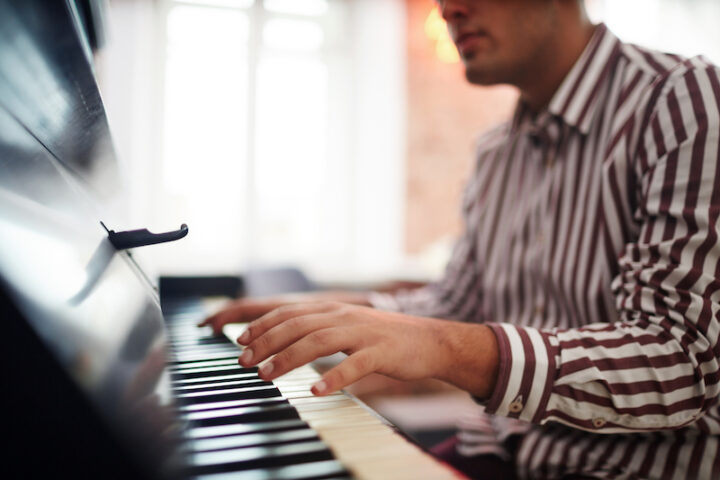Today’s word of the day is pianoforte (masculine, plural: pianoforti) which is how you would say piano in Italian.

Learn with our video
Composed of the words piano and forte (literally ‘soft and loud’), it is an abbreviation of the original name which Bartolomeo Cristofori gave his invention in the early 1700s: gravicembalo col piano e forte (harpsichord with soft and loud).
Note: If you’ve heard the term pianoforte before, that may be because in English, it is a formal and rather uncommon synonym for a piano. Likewise, the short form piano is a synonym for pianoforte in Italian.
Some common verbs you’ll see used with pianoforte include:
- suonare il pianoforte = to play the piano
- accordare il pianoforte = to tune the piano
- accompagnare (qualcuno) al pianoforte = to accompany (someone) on the piano
- insegnare il pianoforte = to teach piano
- studiare il pianoforte = to study piano
Quando ero un ragazzino, suonavo molto bene il pianoforte.
When I was a boy, I used to play the piano very well.
Pianos come in various shapes and sizes, from the large, full-toned pianoforte a coda (grand piano) to the small pianoforte a mezza coda (baby grand). The largest size of a grand piano is the pianoforte da concerto (concert grand piano), which can be up to 2.75 meters long. The pianoforte verticale (upright piano), on the other hand, is a more compact model due to the vertical structure of the frame and strings.

All pianos are made up of the following components:
- tastiera = keyboard
- tasti bianchi = white keys
- tasti neri = black keys
- pedali = pedals
- corde = strings
Switch the two words around and you get fortepiano, which is the name for any piano dating from the invention of the instrument in the early 1700s up to the early 19th century. Just as the name for pianoforte literally means soft-loud, fortepiano is the Italian for loud-soft.
This article is also available in video format on our YouTube channel. The audio version can be found on Podbean, Google Podcast, Apple Podcast and Spotify.
Heather Broster is a graduate with honours in linguistics from the University of Western Ontario. She is an aspiring polyglot, proficient in English and Italian, as well as Japanese, Welsh, and French to varying degrees of fluency. Originally from Toronto, Heather has resided in various countries, notably Italy for a period of six years. Her primary focus lies in the fields of language acquisition, education, and bilingual instruction.


